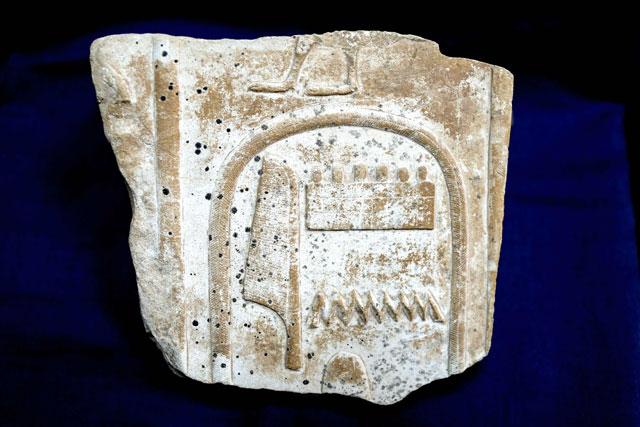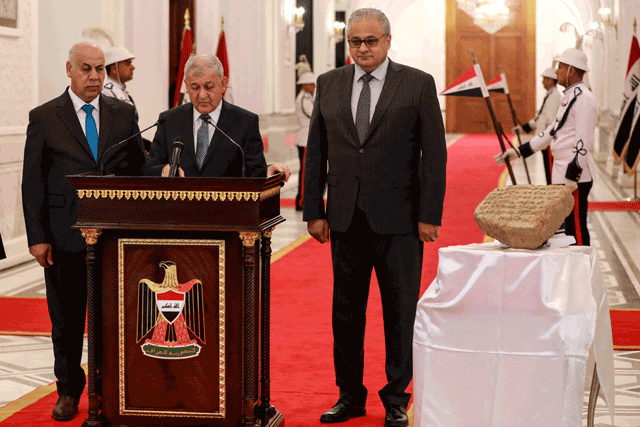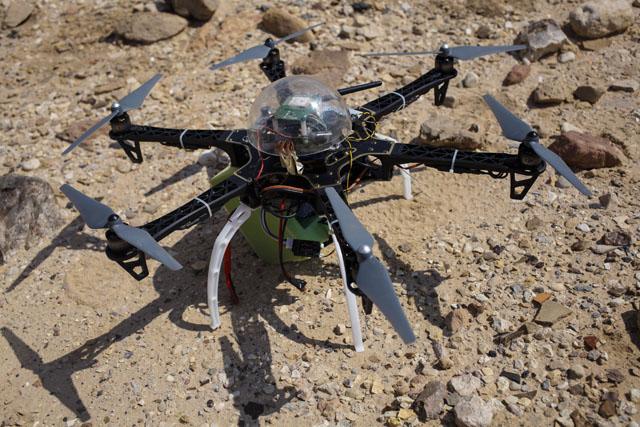You are here
Palestinians ignored in US deal on stolen antiquities
By AFP - Feb 28,2022 - Last updated at Feb 28,2022
By Yasmin Zaher
Agence France-Presse
OCCUPIED JERUSALEM — When US prosecutors struck a deal with a hedge-fund billionaire to surrender 180 stolen artefacts to their places of origin, they insisted victims of his plunder would see “justice”.
But Palestinians doubted it would apply to them.
They saw Michael Steinhardt’s December agreement with prosecutors in Manhattan as yet another setback in their ill-fated quest to retain control of precious antiquities found in Israeli-occupied territories.
Steinhardt’s collection, estimated to be worth $70 million, featured multiple items taken from the occupied West Bank, including areas where even Israel recognises Palestinian civilian control.
E-mails published by prosecutors between Steinhardt and dealers show his collection included a Carnelian fish amulet from around 600BC and an Iron Age cosmetic spoon, both found in Kom, near Hebron, an area the Palestinian Authority controls.
Other, highly valuable, items were found in the West Bank’s so-called Area C, a Palestinian territory under full Israeli control.
But the New York prosecutors said all 40 of the items illegally taken from Israel and the Palestinian territories should be returned to Israel.
Justifying the decision, they said: “The looting took place either at an area within Israel’s borders or at an area over which Israel exercises legal authority.”
It was a jarring conclusion for Palestinian officials, as it appeared to back Israeli ownership of all West Bank artefacts, regardless of where they were found.
The prosecutors did not comment when asked by AFP on whether they considered returning any of the items to the Palestinian Authority, even when their own investigation established the Palestinian provenance of pieces.
The Israel Antiquities Authority (IAA) said that, from their perspective, the items listed in the Steinhardt case “were stolen, sold and exported out of Israel illegally”, without commenting on those found in Kom.
‘Wild West’
Wael Hamamra, head of the Palestinian ministry of tourism and archaeology, said the Steinhardt settlement was unjust.
The collection included “Palestinian archaeological artefacts [that] should be returned to their place of origin”, he told AFP.
Morag Kersel, an archaeology professor at Chicago’s DePaul University, described Israel as the “wild west” in the antiquities trade.
Israel has become a black market hotspot in part because it is one of the world’s few countries with a legally sanctioned antiquities trade among private dealers.
And, unlike the Palestinian Authority, it has not ratified the 1970 UNESCO convention against illicit trade in antiquities.
Israel has tense relations with the Paris-based agency after it became the first in the United Nations system to accept Palestine as a member state in 2011.
‘Archaeological theft’
In addition to private markets and auctions, disputed pieces also show up at leading Israeli museums.
The most valuable items in Steinhardt’s collection were a five-piece set of stone masks believed to be worth more than two million dollars.
Dated from 7,000BC, they are considered by scholars to be among the oldest masks in the world, used in ceremonies to represent the spirits of the dead.
They were found in the Judean desert, which spans both Israel and the West Bank. Their provenance remains uncertain, but Hamamra insisted they were looted from Palestinian territory.
Two of the masks remain on display at the Israel Museum in Jerusalem, where a plaque that said “on loan from the collection of Judy and Michael Steinhardt” was recently removed.
Chemi Shiff, a researcher at Israel’s Emek Shaveh organisation that works to curb the politicisation of archaeology, said Israeli practices were regularly in breach of binding international rules.
That notably included the 1954 Hague Convention which prohibits excavation in occupied territory unless the site is “under threat” and forbids moving antiquities across borders.
“Israel is obliged by this convention,” Shiff said.
He told AFP that former Israeli military chief Moshe Dayan committed “archaeological theft” when he took a collection of Bronze Age sarcophagi, also displayed in the Israel Museum, from a cemetery in Gaza after the 1967 June War.
Hamamra said repatriation of artefacts to Palestinian authorities “is our right and the right of future generations,” but admitted that there is currently no organised effort to return antiquities, as “there is limited communication” with Israel on the issue.
Related Articles
CAIRO — An ancient Egyptian pharaonic stone tablet that was stolen from Karnak temple was repatriated this week from Britain where it h
BAGHDAD — Iraq unveiled on Sunday a 2,800-year-old stone tablet returned by Italy, as the war-ravaged country works to recover from abroad a
At a sprawling Bronze Age cemetery in southern Jordan, archaeologists have developed a unique way of peering into the murky world of antiquities looting.



















